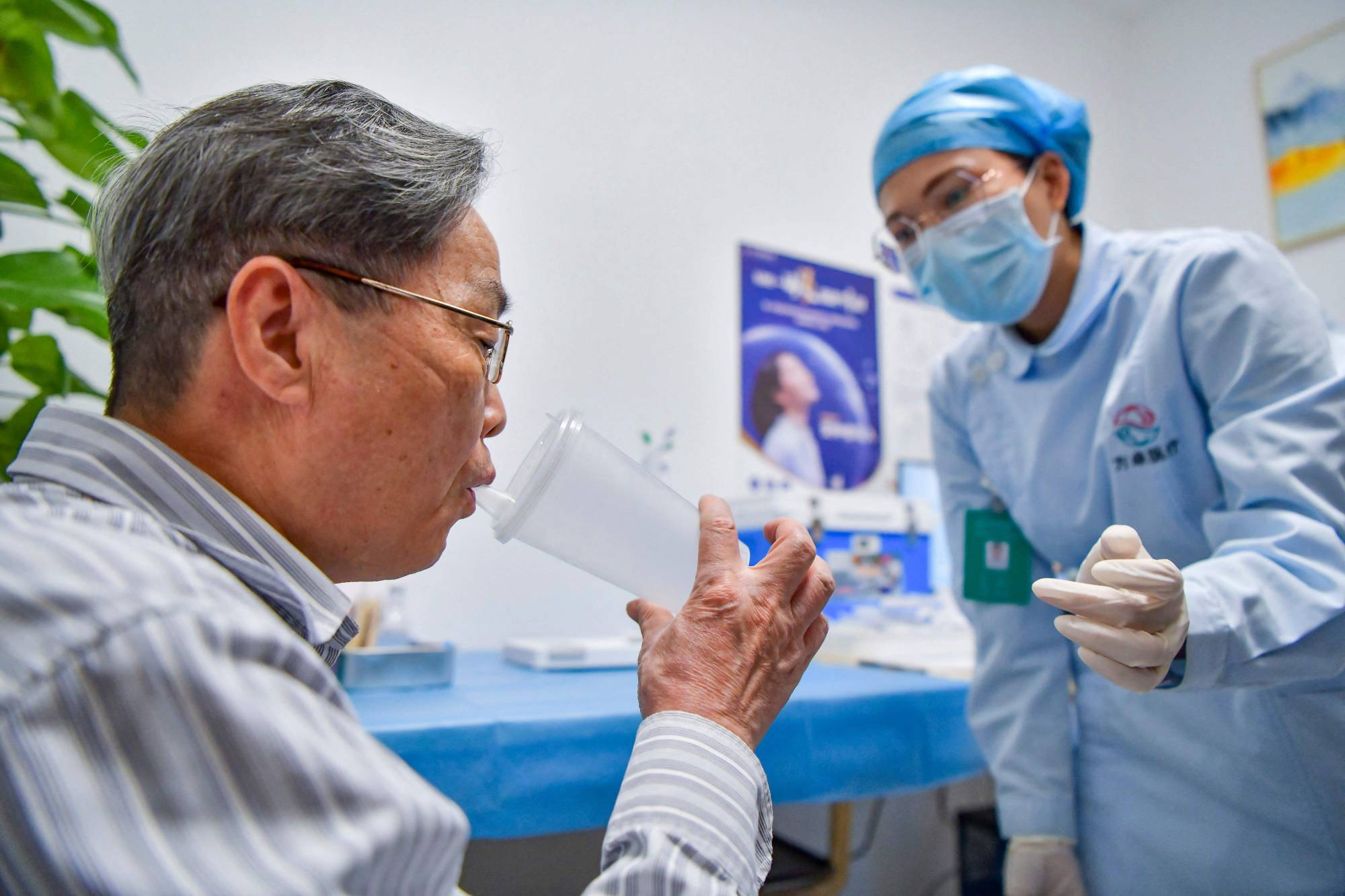Authorities in China are going door to door, paying people over the age of 60 to be immunized against COVID-19. Despite the increase in cases, people are refusing the get vaccinated, 64-year-old Li Liansheng says he and his friends are concerned by reports of fevers, blood clots, and other side effects.
“When people hear about such incidents, they may be unwilling to take the vaccines,” said Li, who had been immunized before contracting COVID-19. Li is suffering from a sore throat and cough a few days after his 10-day bout with the virus. He described it as a “normal cold” with a mild fever.
As it tries to reverse an economic slump, China has joined other countries in treating cases rather than trying to eradicate virus transmission by dropping or relaxing rules on testing, quarantines, and movement. However, the shift has overrun hospitals with feverish, wheezing patients.
The National Health Commission announced on Nov. 29 a campaign to increase vaccination rates among older Chinese, which health experts say is critical to avoiding a health-care crisis. It’s also the biggest impediment to the ruling Communist Party lifting the world’s most stringent antivirus restrictions.
For two years, China used a “zero-COVID” strategy that isolated cities and confined millions of people to their homes to keep case numbers low. As it backs away from that approach, it is now facing the widespread outbreaks that other countries have already experienced.
This month, the health commission has recorded only six COVID-19 fatalities, bringing the country’s total to 5,241. Despite multiple reports from families of relatives dying, this remains the case.
Up to 2 million deaths from COVID-19
According to a health official, China only counts deaths from pneumonia or respiratory failure in its official COVID-19 toll. This unusually narrow definition excludes many deaths that would otherwise be attributed to COVID-19 in other countries.
Experts predict that 1 to 2 million people will die in China by the end of 2023.
Li, who was working out in the leafy grounds of central Beijing’s Temple of Heaven, said he’s thinking about getting a second booster because of the publicity campaign: “As long as we know the vaccine won’t cause major side effects, we should take it.”
Neighborhood committees, the lowest level of government, have been tasked with locating everyone 65 and older and monitoring their health. They are doing what the state media refers to as “ideological work,” lobbying residents to get their elderly relatives vaccinated.
The Liulidun neighborhood in Beijing, China’s capital, is offering people over 60 up to 500 yuan ($70) for a two-dose vaccination course and one booster.
The National Health Commission announced on December 23 that the number of people vaccinated daily had more than doubled to 3.5 million across the country. However, this is still a small fraction of the tens of millions of shots given every day in early 2021.
Older people are put off by the potential side effects of Chinese-made vaccines, the results of which have yet to be released by the government.
After being vaccinated, Li’s 55-year-old friend developed fevers and blood clots. He claims they can’t be certain the shot was the culprit, but his friend is hesitant to get another.
“The virus is also said to be mutating,” Li added. “How do we know if the vaccines we use are effective?”
Potential vaccine side effects
Some are hesitant to get vaccinated because they have diabetes, heart problems, or other health complications, despite experts’ warnings that the risks of COVID-19 are more serious than potential vaccine side effects in almost everyone.
A 76-year-old man using a stick to take his daily walk around the Temple of Heaven said he wants to be vaccinated but has diabetes and high blood pressure. The man, who only gave his surname, Fu, said he wears masks and avoids crowds.
Older people also felt little urgency because, prior to the latest outbreak, there were few cases, implying that few were at risk of infection. However, due to the earlier lack of infections, China has few people who have developed antibodies against the virus.
“Now, the elderly’s families and relatives should make it clear to them that an infection can cause serious illness and even death,” said Jiang Shibo of Shanghai’s Fudan University medical school.
According to the National Health Commission, more than 90% of Chinese people have been vaccinated, but only about two-thirds of those over the age of 80 have. According to the 2020 census, China has 191 million people aged 65 and up, making it the eighth most populous country, ahead of Bangladesh.
“Coverage rates for people over the age of 80 still need to be improved,” according to the Shanghai news outlet The Paper. “The elderly are particularly vulnerable.”
According to his caretaker, Li Zhuqing, who was pushing a face-mask-clad Du through a park in a wheelchair, Du Ming’s son arranged for the 100-year-old to be vaccinated. Li agreed with that strategy because none of the family members had been infected, implying that if they were exposed, they would be more likely to bring the disease back to Du.
Reporters’ requests to visit vaccination centers were turned down by health officials. When employees discovered who the two visitors were, they were asked to leave.






